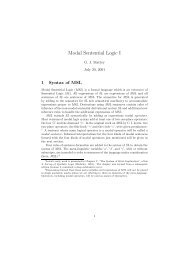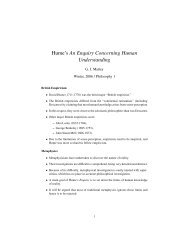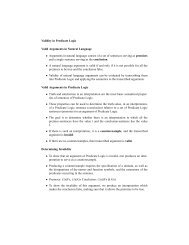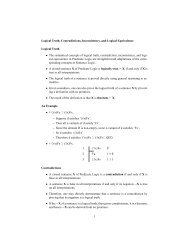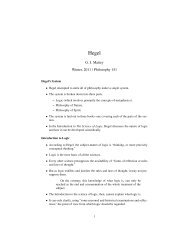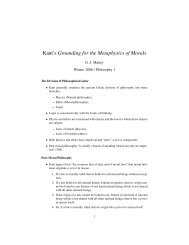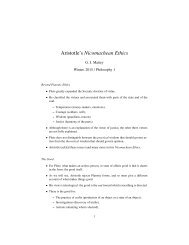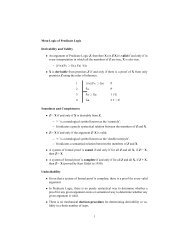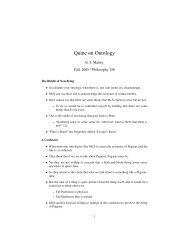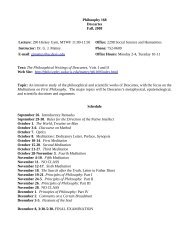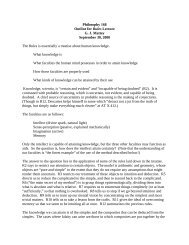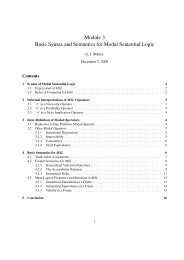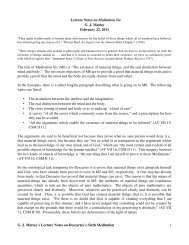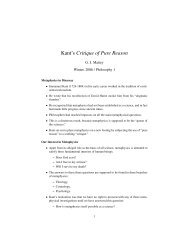Plato's Phaedo - the UC Davis Philosophy Department
Plato's Phaedo - the UC Davis Philosophy Department
Plato's Phaedo - the UC Davis Philosophy Department
You also want an ePaper? Increase the reach of your titles
YUMPU automatically turns print PDFs into web optimized ePapers that Google loves.
Knowledge of <strong>the</strong> Forms• The forms are not perceivable by <strong>the</strong> bodily senses.• Plato assumes that if <strong>the</strong> forms are not perceivable by <strong>the</strong> bodily senses, <strong>the</strong>ycannot begin to be known in <strong>the</strong> course of one’s life.• If knowledge of <strong>the</strong> forms is not acquired in <strong>the</strong> course of life, <strong>the</strong>n ei<strong>the</strong>r:– It was possessed at birth, or– It was not possessed at birth.• Knowledge of <strong>the</strong> forms was not possessed at birth, since if it were, more peoplewould know <strong>the</strong>m.• Plato concludes that if one knows <strong>the</strong> forms now, <strong>the</strong>n one must have acquiredknowledge before birth, lost it, and recovered it after birth through “recollection.”Immortality• Plato develops <strong>the</strong> <strong>the</strong>ory of <strong>the</strong> forms in <strong>the</strong> <strong>Phaedo</strong> to aid in his arguments for<strong>the</strong> immortality of <strong>the</strong> human soul.• He claims that only by being free from <strong>the</strong> body can <strong>the</strong> soul attain <strong>the</strong> knowledgeit desires.• The body is a hinderance to <strong>the</strong> soul, by giving rise to needs and desires, whichdisrupt it.• The philosopher is really in training for death, which will release him from <strong>the</strong>tyrrany of <strong>the</strong> body—if <strong>the</strong> soul survives.• It requires “a good deal of faith and persuasive argument” to show that <strong>the</strong> soulexists after <strong>the</strong> body dies.Preliminary Argument for Immortality• The first argument for immortality has two parts, <strong>the</strong> first of which establishes aconditional conclusion, and <strong>the</strong> second of which supplies <strong>the</strong> condition.1. If a quality of a thing comes to be, <strong>the</strong>n it comes to be from its opposite.(E.g., it becomes hot, so it was cold.)2. Being alive is <strong>the</strong> opposite of being dead.3. So, if something comes to be alive, <strong>the</strong>n it comes to be alive from beingdead.4



